Historic
APME (Romanian Pentecostal Foreign Mission Agency) – Historical Landmarks
The missiological context of Romania after 1990
For half a century, because of the communist oppression, the Pentecostal Church in Romania has been practically isolated from the other Pentecostal Churches in the world, and thus isolated from any cross-cultural mission work. Situated behind the Iron Curtain, Romania had become a huge concentration camp, and so it was impossible for most of its citizens to cross the borders and travel outside of the country.
The isolation, but also the impossibility of doing cross-cultural missions, has implicitly led to an obvious gap in the theology of the Church – the mandate of the Great Commission (Matthew 28:18-20) was not part of the Pentecostal Church’s “agenda” in Romania.
The fall of communism in 1989 did not change things overnight. In the first decade after that, cross-cultural mission work was still a mirage for the Evangelical denominations in Romania, including the Pentecostal Church. During that time, among the European and global missionary circles, the Romanian Pentecostal Church (RPC) was rightly called “the sleeping giant”.
Towards the end of the twentieth century, due to an extraordinary new enthusiasm for evangelism and church planting, there were already over two thousand churches in the country; however, the Department of Mission and Evangelism (DME) of the Pentecostal Church hadn’t yet sent any cross-cultural workers. The few missionaries that did leave during that time were sent and supported by local churches, by international missionary organizations (OM, Wycliffe, YWAM), or they went on their own, with support from friends.
Apart from the lack of missionary knowledge in the churches, which was caused by communism and isolation, there were other factors that kept the Pentecostal Church in Romania far from cross-cultural missions – these factors were political, economical, but also theological (ecclesiastic). Up until 2007, when Romania became part of the EU, its citizens continued to face serious difficulties in traveling outside of the country and obtaining visas for entering certain states. Furthermore, the country’s “invasion” of foreign missionaries after 1989 helped cultivate the false impression that Romania is a mission field, and not a real mission force.
The financial and economical crisis that followed the Revolution, so typical of any country’s transition towards a market economy, put together with the fast-rising inflation, also helped in developing the Church’s mentality that it is too poor for cross-cultural missions and too poor to support its own missionaries.
And lastly, the local success in evangelism and church planting, along with the interest shown towards Romania’s least evangelized areas, led to the belief – almost unanimously accepted – that, because we’re interested in evangelizing our own people, we’re already doing mission work. After 1989, nearly everything that was being done outside of the church walls was called mission work. So, if this was mission, why would it be necessary to send missionaries to other countries? This misconception led to a significant loss of depth and understanding of the term “mission”, just like Stephen Neill said: “If everything is mission, nothing is mission”.
The first seeds
Despite the fact that, in the first 15 years after the Revolution of December 1989, not much was happening related to cross-cultural mission at an institutional level, there were still many projects and activities being developed inside the Pentecostal movement. These projects not only anticipated and prepared the start of a mission organization, but also really showed the need for one.
The most well known missiological endeavors during that time are the “RoMisCon” conferences (Romanian Missionary Convocation). These were launched by Cameron Wilson and his wife, Marvel. The first conference took place in 1999 in Arad, at Betania Church. As their initiator later declared, “these conferences had the purpose of quickly increasing the level of knowledge and dedication of the Romanian believers towards missions”. Because these conferences were organized in a different location every year, the concepts of “mission/missionary” were thus faster spread in various areas of the country.
After these conferences were started by brother Cameron Wilson, his expectation was that the Romanian believers would take over and organize them further on. So, after the fourth RoMisCon conference, he stated that in order for the next one to happen, it would have to be organized by the Romanian churches. Therefore, the fifth and sixth RoMisCon conferences were organized in Dobrogea area, in Medgidia. This area was already showing some openness towards cross-cultural missions, due to the presence there of some Turkish ethnic groups, and also due to the connections that the Romanian churches had formed with believers in Turkey.
From there on, the RoMisCon conferences would be organized every year with more and more logistical support from the Romanian believers, and starting in 2006, APME (Romanian Pentecostal Foreign Mission Agency) would become the official organizer of these conferences.
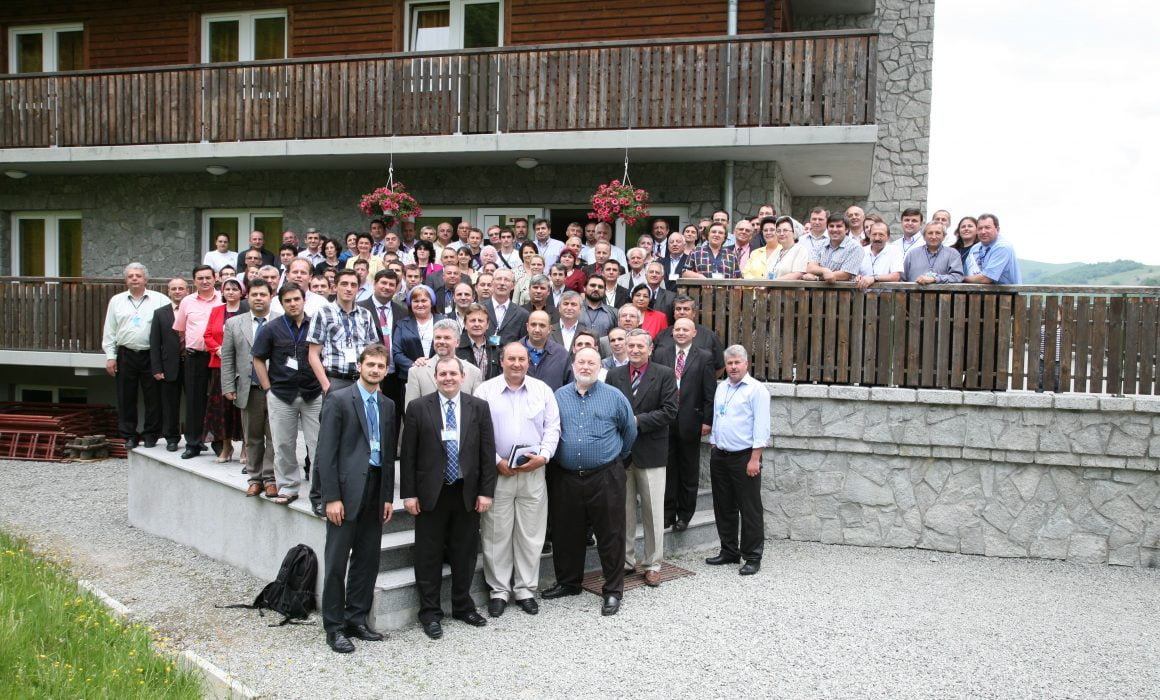
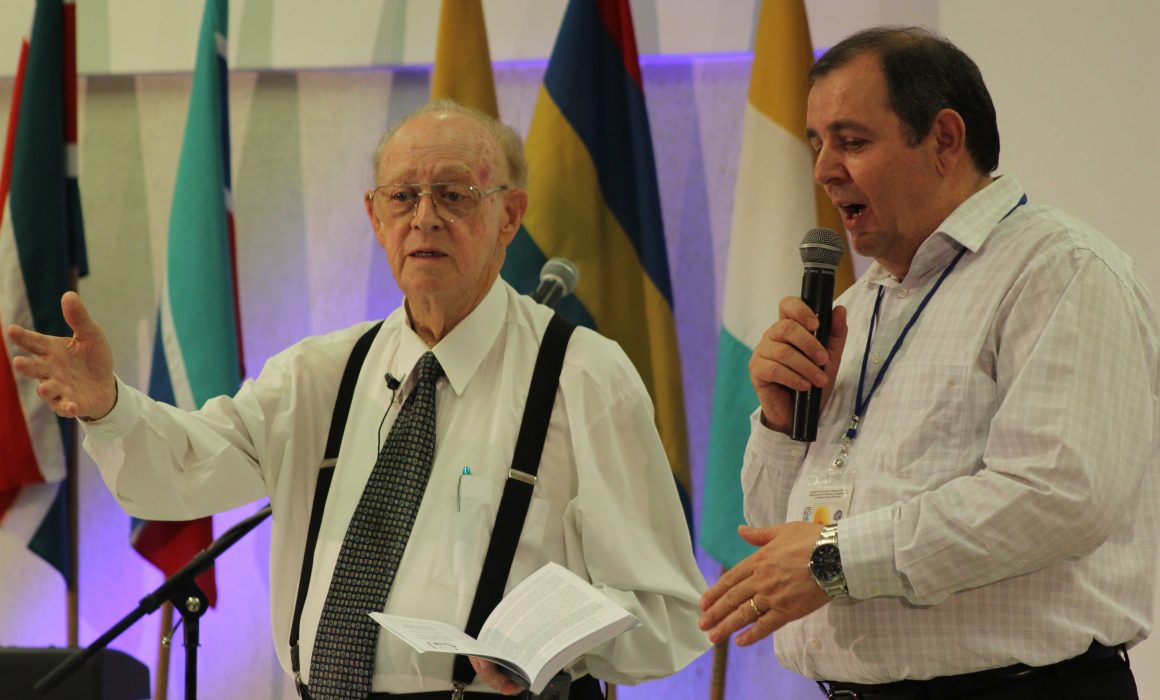
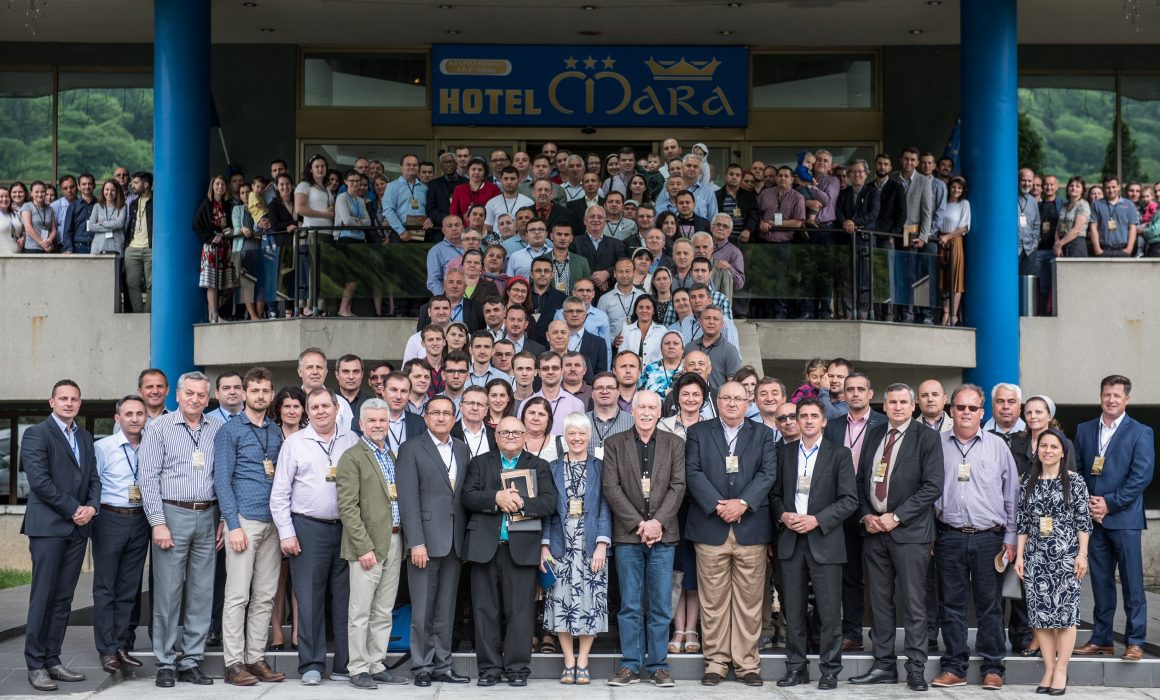
In 2000, the pastors from Dobrogea area organized the first conference with a specific emphasis on Turkey, and they invited some Turkish pastors to speak about the need for the Gospel in their country. As a result of that conference, in 2001, the first Romanian school of mission was started, as a part of “Farul” Pentecostal Church, in Constanța. At the time, the pastor of the church was Gheorghe Rițișan, and the school was called “Dobrogea School of Mission and Evangelism”. In 2009, the school’s name was changed to “Romanian Center for Cross-Cultural Studies”. In August 2009, “Farul” Church sent its first cross-cultural missionary (Elena S.), to Turkey.
There were also some conferences organized by the Department of Mission and Evangelism (DME), along with FIDA (Pentecostal missionary organization in Finland) and PEM (Pentecostal European Mission) in 2001 and 2002, in the city of Bușteni. These conferences were coordinated by pastor Ioan Bochian, and they were instrumental in making the Romanian Pentecostal Church’s leaders more aware of how important it is to have a structured method of sending missionaries. In particular, the seminars presented by Arto Hamalainen, titled “Basic Requirements of Missionary Work” and “Strategies of Modern Missions”, have had a significant contribution to the birth of APME in the following years. Some of the pastors involved in organizing these conferences would later become part of the founding members of APME. They also started being more and more interested in seeing missions become a priority on a national level.
In 2003, the PEF Conference (Pentecostal European Fellowship) was organized in Buziaș, and it was attended by over one hundred Romanian pastors and Pentecostal European leaders. During this conference, Rick Cunningham (missionary with AGWM – Assemblies of God World Missions) delivered a prophetic message about “awakening the sleeping giant”, and also mentioned that he himself felt convicted to be a part of fulfilling this dream.
Apart from the mission conferences organized in Romania, the international conferences also played a big role in training and guiding the Romanian Pentecostal mission’s leaders. In this context, it is important to mention the ‘Consultation on Evangelizing Muslims’, a conference that took place in Baguio, Philippines (February 2005), where pastors Gheorghe Rițișan and Vasilică Croitor, along with George G. (missionary in Central Asia), were able to attend. While at this conference, the conversations carried with some of the leaders of global missions (especially with Brad Walz, president of WAGF-MC), and the example shown by other Pentecostal churches that started their own missionary organizations, played a decisive role in the later formation of APME. Rick Cunningham was instrumental in supporting the Romanian pastors and facilitating their attendance to this crucial conference, because he gave up his own invitation so that those mentioned above would be able to go.
The Theological Institutes (Pentecostal Theological Institute and Romanian Biblical Institute), along with the Bible schools also contributed a lot to the dissemination of missiological concepts and to the training of Romanian young people for missions. Towards the end of the ‘90s, they offered more and more mission courses, and organized missiological symposiums. The Eastern European Bible College (EEBC) in Oradea also contributed to the training of many young people for cross-cultural missions. In partnership with the Pentecostal Society for Mission and Charity in Romania (PSMCR), this school sent the first missionaries to India (Maria I. and Lidia M.) in 1998.
In 2002, at the initiative of pastors Pavel Tipei and Franz Johansen, the ‘Team-Action’ Mission School was started in Arad (as a part of Betania Church). This school was especially focused on training young people for short-term missions.
The Christian summer camps organized in Romania after the fall of communism (especially Peniel and Christ for Romania camps) were another way of making known the concept of missions. Almost every camp had in its schedule some seminars or topics about cross-cultural missions, and at least one career missionary was invited every time to share and challenge the youth to get involved in fulfilling the Great Commission.
Many young people, joined by pastors, started doing short-term mission trips; this helped in raising the churches’ awareness about the great spiritual needs, and also the many tools available all over the world, unknown until then to Romanian believers. The reports they brought back started preparing the pastors and the churches to answer these needs in a positive way – through prayer and financial support for those who were willing to go cross-culturally.
At this point, several mission trips should be mentioned, because the pastors that went on these trips would later become part of the founders of APME: the trips organized by Global United Mission (MMU) in India, of which Vasilica Croitor (in 2000), Ghiță Rițișan and Emil Meștereagă (in 2004) were a part of. Also, another trip was the one organized by Biblical Education by Extension (BEE) to Vietnam, where Dumitru Mircea Deteșan went in 2000, 2001 and 2005.
A full summary of the mission trips from that time can be found in the book “A History of Romanian Pentecostalism”, written by Prof. Andreiescu.
The birth of APME
The desire to start a missionary organization grew progressively, as the Romanian Pentecostals started traveling to other cultures, with help from various organizations. In 2005, even though some young Pentecostal missionaries were already serving in several countries, none of them were officially supported by the Department of Mission and Evangelism of the Pentecostal Church. The giant was still sleeping…
The first official discussions about starting the agency began in 2003, but things got caught by inertia. Some of the most important steps were made during the RoMisCon conference in Cluj (Betel Church), in 2005. The leadership board was selected, the location was decided to be in Medgidia, and the name ‘Romanian Pentecostal Foreign Mission Agency’ – APME, was chosen. Decisions were made on the contributions, on where the financial support would come from, and on how the organization would work with the missionaries (the emphasis would be put on long-term/career missionaries, and less on short-term mission trips). It was also decided that, right from the start, APME would work closely with the Romanian Pentecostal Church, as long as there would be openness for that.
In this context, during that year, the Holy Spirit brought together a group of pastors, united them as a team and gave them a mission: to lay the groundwork for a functional missionary agency that would serve the Romanian Pentecostal Church. Vasilică Croitor, Rick Cunningham and Emil Meștereagă were the ones who wrote the agency’s statute. They used as inspiration the documents of other similar Pentecostal organizations: WAGM, FIDA, and the Mission Department of AG in Argentina, which was coordinated at the time by Brad Walz. Getting all the documents ready was a longer process than anticipated, but with God’s help, on February 2nd 2006, APME was officially and legally born. Even though, at the time, the Pentecostal Church’s leadership was not quite ready to have a mission agency, this initiative was encouraged and blessed.
The founding members of APME, who also formed the first Board of Directors (BD), were the following pastors: Emil Meștereagă – president, Dumitru Mircea Deteșan – vice president, Vasilică Croitor – secretary, Gheorghe Rițișan and Rick Cunningham – members. Two years later, pastors Iacob Berghianu and Florin Cîmpean (USA) were also invited to join the Board of Directors of APME. As the agency grew and it became necessary to connect the future missionaries with certain mission fields, the position of ‘secretary for external relations’ was created, and it has been occupied by Rick Cunningham to date.
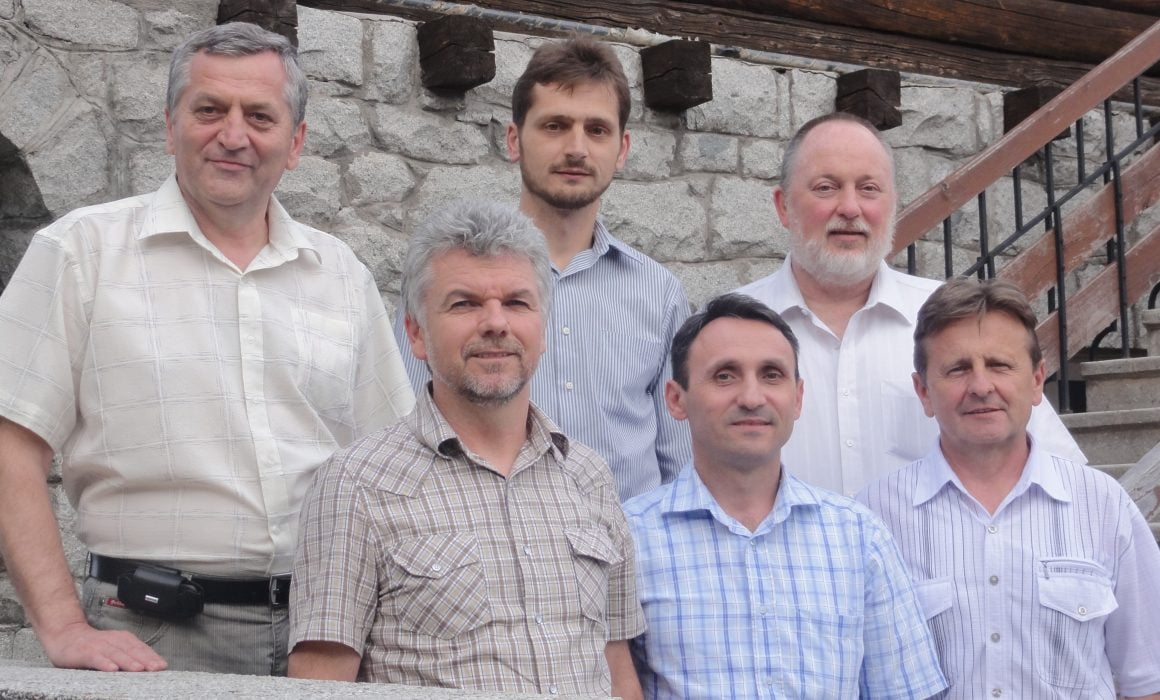
During the years 2006-2007, a number of seven Romanian Pentecostal missionaries, who were already on the mission field, found out about APME and expressed their desire to become a part of this organization. Starting with them, God then added more and more young people every year, and after a recruiting and training process, these people became career missionaries sent and supported by APME.
Until 2020, 76 people have been accredited for long-term cross-cultural missions, and they are serving in over 25 countries, on three continents.(grafic)
In 2008, in fulfillment of the vision they had from the beginning, the APME founders established a Reference Committee (RC), to prove that the agency was open to working with the Pentecostal Church’s structures. They also wanted to be completely transparent in their ministry, therefore this Committee would hold them accountable for their work. Ever since the Committee was established, its president was pastor Ioan Moldovan, and the other members are mostly influential pastors from the Romanian Pentecostal Church.
Currently, this Reference Committee consists of 12 pastors. They represent most of the Regional Pentecostal Communities in Romania, the Romanian diaspora in Europe and the US, and also the believers from the Republic of Moldova. Cameron Wilson was an honorary member of the RC until his death in 2015. A financial and activity report is presented by APME at the beginning of each year, both to the RC and to the Ecclesiatical Council of the Pentecostal Church.
In that same year, 2008, pastor Gheorghe Rițișan was selected to be the president of APME and started working full-time for the agency. A year later (in 2009), the APME office was moved from Medgidia to Cluj-Napoca.
The founding members of APME wanted this organization to become the official structure that would send and support Romanian missionaries. This desire began to be fulfilled ten years later, in 2015, when the Ecclesiastical Council of the RPC approved the proposal to make APME the Pentecostal Church’s division that would be in charge of cross-cultural missions. The process of APME’s integration into the Pentecostal Church continued in the following years, and was finalized in 2017, when the RPC’s Congress approved the modifications necessary to its statute, and to APME’s statute, so that the integration would be made possible on a judicial level as well. Pastor Moise Ardelean, the president of the RPC, and Ioan Moldovan, the coordinator of RPC’s Department of Mission and Evangelism, played an important role in starting and then finalizing this process. Pastor Ardelean became a fervent supporter of cross-cultural missions especially after attending the RoMisCon conference in 2014.
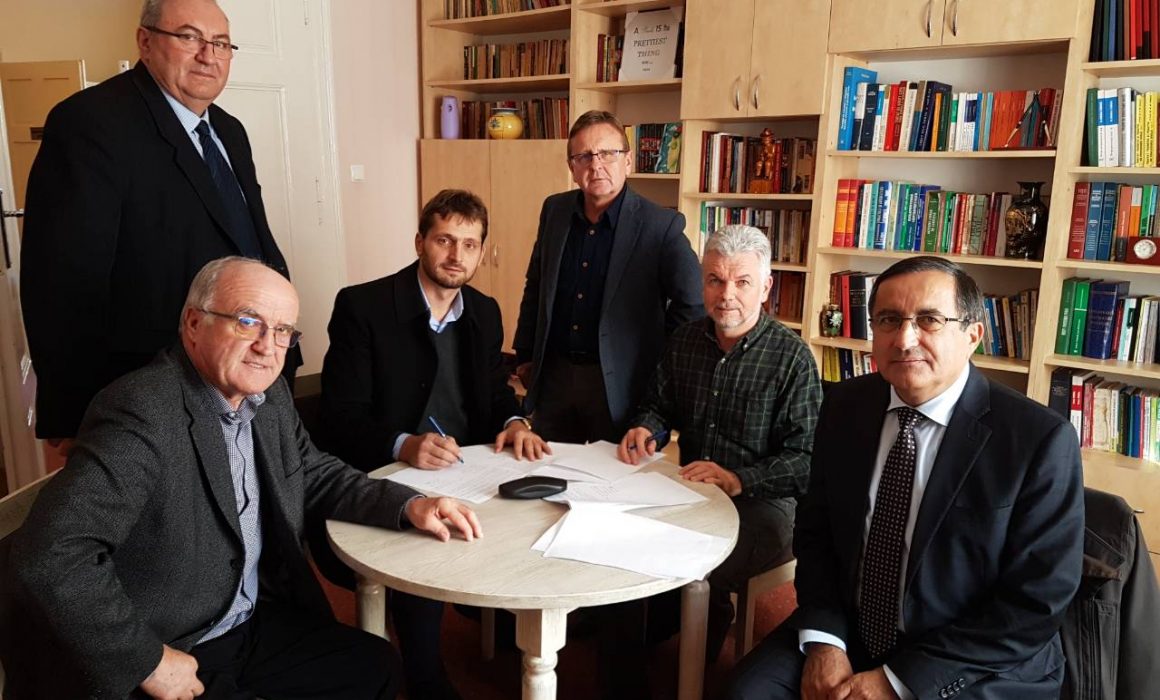
International recognition and global partnerships
Almost immediately after it was established, starting in 2007, APME was invited to be a part of the Pentecostal European Mission (PEM), a network that brings together over 40 Pentecostal missionary agencies from Europe. Since 2010, the APME president has been a member of the PEM Committee, and in 2015 he was selected to be PEM’s vice president.
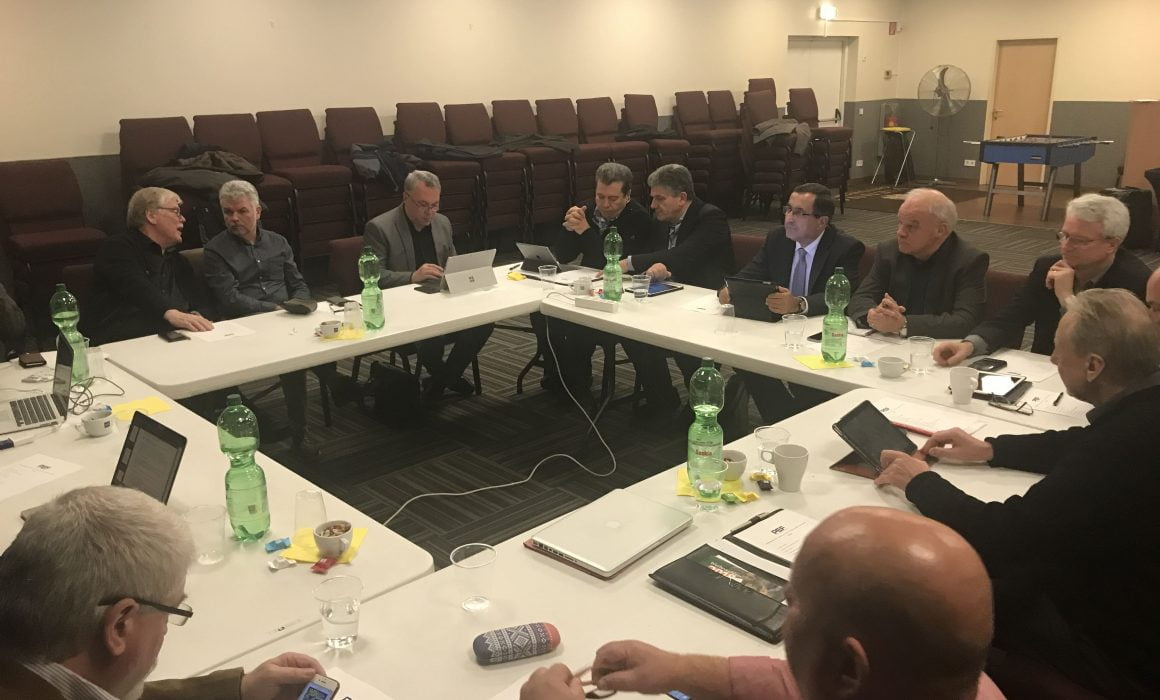
Another indication of how appreciated APME’s work is internationally is the fact that, since 2010, two of its Board of Directors’ members (Gh. Rițișan and Rick Cunningham) were chosen to become members of the two global mission committees: World Assemblies of God Fellowship – Mission Commission (WAGF-MC) and Pentecostal World Fellowship – Mission Commission (PWF – MC). Throughout the years, members of APME’s Board of Directors have been invited many times to speak, or to attend seminars and workshops at the most important global Pentecostal conferences and conventions. Starting in 2019, due to the large number of APME missionaries in Asia, the agency is also part of PAM (Pentecostal Asia Mission), an organization that brings together Pentecostal missionary agencies from Asia.
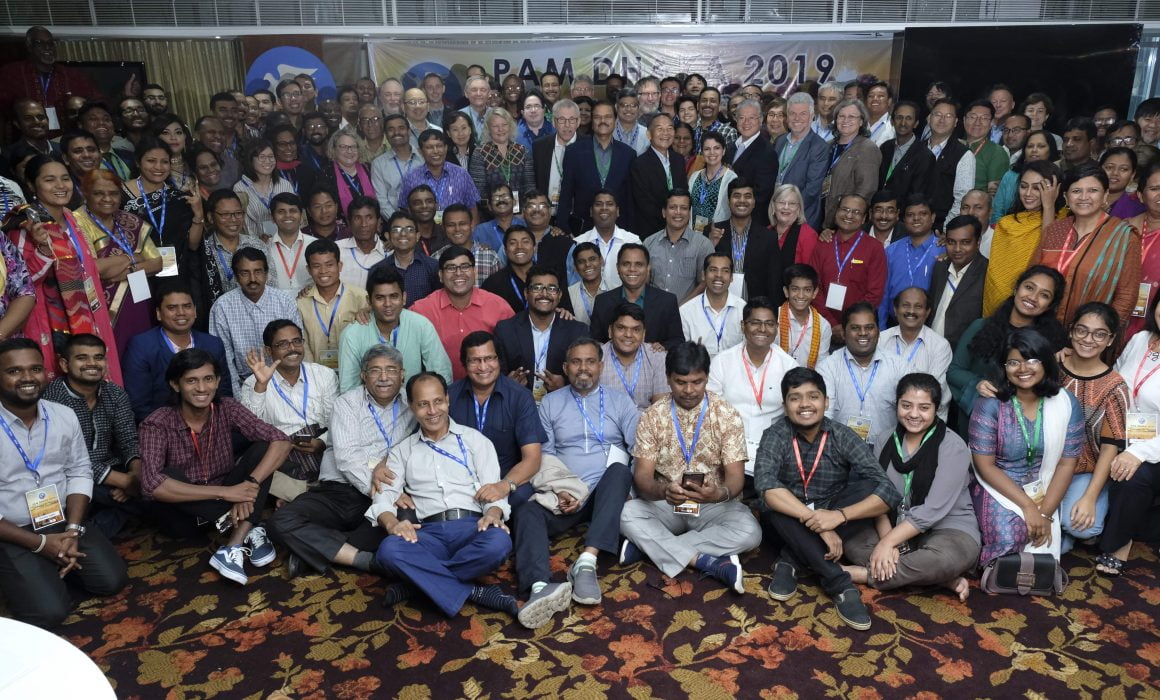
A very important foreign partner of APME is Discover Your Mission (DYM), an organization founded in 1993 by Rev. Cameron Wilson. In the beginning, this organization’s purpose was to help American churches start their own missionary programs. Since 1998, DYM shifted its focus towards the Romanian diaspora in the US, in order to mobilize the churches to support Romanian missionaries. In 2010, the founder of DYM entrusted the organization and its mission to a group of Romanian pastors living in the US, and in that same year Florin Cîmpean and Simion Timbuc became co-presidents of DYM Inc.
The Genesis organization (through Florin Cîmpean – president and Ilie Tomuța – director) is another faithful and constant partner, and has been promoting the APME missionaries in the US since 2008.
It is important to mention, among other foreign partners of APME, Ljus I Oster (Light for the Sunrise) – a Swedish organization that supported, even before APME was born, the New Frontiers magazine, and facilitated the translation and publication of other missionary books. They also helped organize several mission conferences (The Black Sea Consultation), and then remained a faithful partner of one of APME’s missionaries and their family, as they serve in the Balkans.
At a local level, all through APME’s existence, partnerships have been developed with other Romanian and international organizations (like Wycliffe, OM, YWAM, PSMCR, UMM), in sending and supporting career missionaries.
Administration and other ministry areas
After the agency was established, the first few years of its ministry – volunteer work done by the Board of Directors’ members – can be divided as shown in the graphic below: recruiting, training, sending, supporting, and re-entry.
The following years revealed two important aspects related to APME’s work: one the one hand, there was a need for an efficient administrative team (secretariat, finances, accounting, human resources), that would improve the agency’s functionality, because the number of missionaries kept growing. And on the other hand, it became imperative to create new departments and areas of ministry that were indispensable for the development of APME. It also became obvious, when sending missionaries to parts of the world new and unknown to APME, how necessary it is to establish strong partnerships with missionary organizations that are already there on the field, or with local churches, when possible.
Because the number of missionaries that were sent grew fast in a relatively short amount of time, APME became a case study for other Pentecostal movements, who didn’t have such a sending structure, or if they did, it wasn’t functioning as well. Therefore, at the World Mission Conventions that WAGF-MC and PWF-MC organized in Cancun (Mexico 2012), Bangkok (Thailand 2015), Costa Rica (2015), Singapore (2017), Madrid (Spain 2018), Calgary (Canada 2019), APME was already a role model for the Pentecostal missions’ leaders from the dozens of countries represented. The APME representatives (Gh. Rițișan, Rick Cunningham, George G., Ileana-Ina Hrișcă), who spoke and held seminars at these conventions, tried to encourage particularly the Third World countries’ churches to get involved in sending and supporting cross-cultural workers.
After 10 years of existence, the APME team, together with Doru Cîrdei (a member of the Reference Committee), reconfigured the APME structure and leadership areas, in a brainstorming session in Cluj-Napoca. This was done so that the organization could better answer the current needs, in relation with the missionaries and the local churches. Both the world and APME looked very different from what they were a decade ago. The organization was forming and growing in a time of fast and radical changes, so it was necessary to adjust things, in order to better face the challenges.
This graphic is a result of several days of prayer and discussions, and it underlines APME’s most important leadership areas at the moment.
a. Mobilization
Mobilizing the local church leaders
Mobilizing the local churches towards cross-cultural missions was considered the most urgent task that APME’s leaders had to focus on right after starting the organization.
The national RoMisCon conferences were probably the most important instrument used in mobilizing the leaders of the local churches. At first, the conferences were addressed to all those interested in missions, especially in the younger generation. But unfortunately, the pastors got the impression that they were only addressed to the youth. Therefore, beginning with RoMisCon 12 (in 2010), the format of the conferences was changed to include mostly church leaders, in order to expose them to cross-cultural mission work. This change has led, in time, to a greater involvement of the local churches in sending and supporting missionaries.
Mobilizing the young generation
Starting in 2011, the Mobilization Department of APME (coordinated between 2011-2018 by Daniel Bujeniță and then by Mircea Deteșan Jr.) began to organize ‘The Mission Camp’ every year, in Cluj. Since 2012, this camp has been organized in partnership with Wycliffe Romania, and since 2018 it is also organized in two other locations, Arad and Suceava districts, in partnership with the local Pentecostal Communities. These camps are a place where those unfamiliar with cross-cultural missions can learn the biblical principle of making disciples, and can understand better what mission is all about, both in theory and in practice. The participants are also being challenged and motivated to become part of God’s plan of salvation for the whole world.
The purpose of these camps is to expose the participants to cross-cultural missions, through seminars and testimonies from the mission field, and also to recruit candidates who will go cross-culturally or will become engaged in supporting those who go. Starting in 2016, the same type of camp is being organized for the Romanian diaspora in Spain as well, through the special contribution of the Balic family, and Mircea Deteșan Jr.
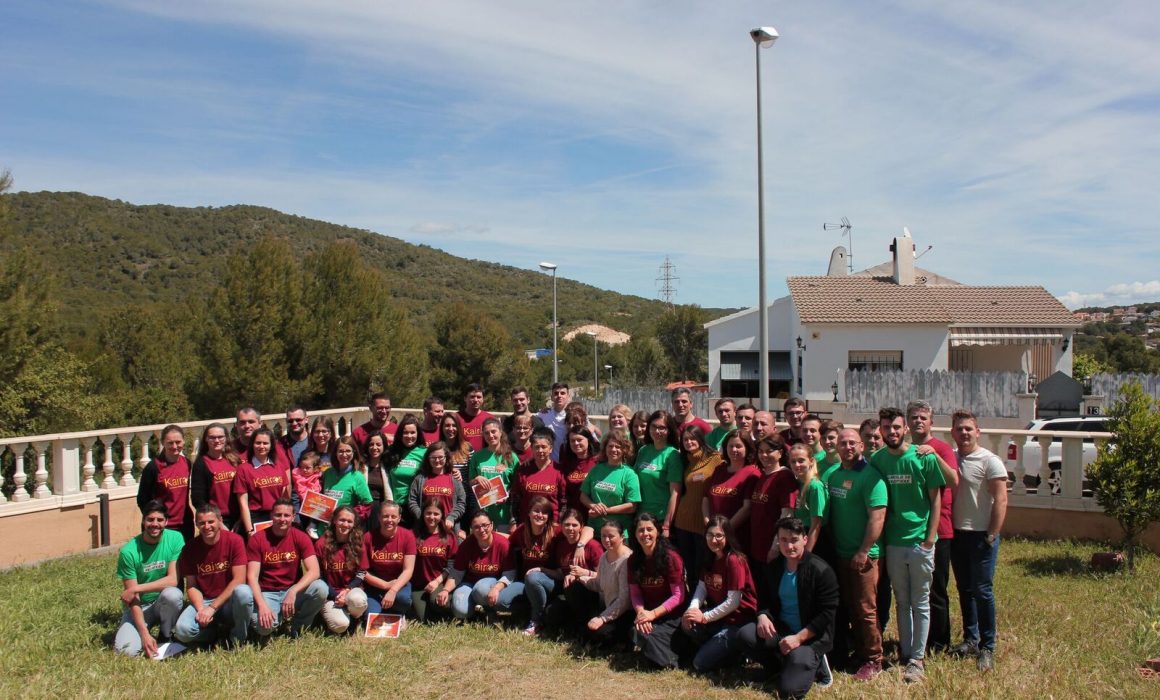
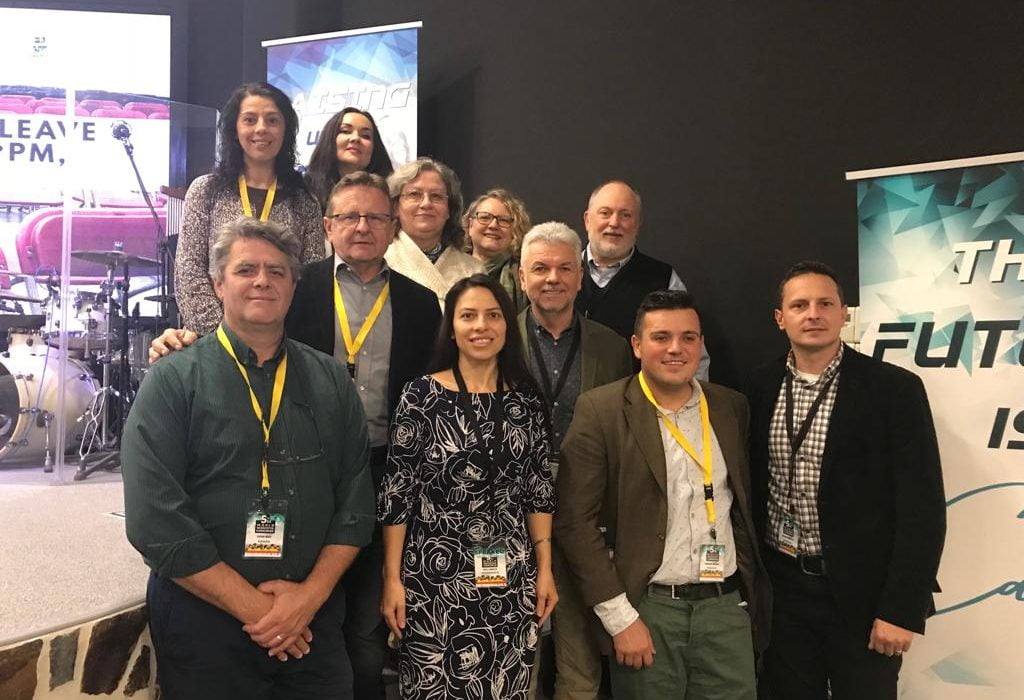
For the same purpose of mobilization, visits began to be made to Christian high schools and to the Pentecostal Theological Institute, where the students were mobilized through presentations of the missionary work.
The mobilization of the believers is mostly done through mission courses, like: Kairos Course, Interface, Go Mobilize, Beyond Culture, Empowered, but also through some special church programs called ‘The Mission Sunday’.
Mobilizing for prayer
The most important need of the missionaries is that of having prayer partners – people who will constantly uplift them in prayer and who will make sure that, spiritually, someone is fighting along with them. Since 2011, APME has been issuing an annual Prayer Calendar, which is being distributed to all the Pentecostal churches in the country, it is posted online and on social media.
Since 2010, in order to better inform about the missionaries’ work, APME has been issuing a brochure, which is being updated yearly, or as needed. The newsletters that were being distributed to thousands of people by mail during 2011-2015, are now sent online, by email, since 2016.
The New Frontiers magazine, founded in Constanța in 2004, is being published every other month, with a circulation of 1000-1500. Through its articles and materials, the magazine is promoting the mission work, also particularly promoting APME and the Romanian Center for Cross-Cultural Studies.
Every week, since 2015, the Credo TV network is broadcasting a program called To the Ends of the Earth, that APME is producing, a program consisting mostly of interviews with missionaries and other people involved in missions.
b. Training
As the age of those called to missions began to decrease, it became obvious that there was a growing need for more theological and missiological training for those who wanted to go on the field. Even though the two years of training at the Romanian Center for Cross-Cultural Studies are not mandatory for those sent by APME, the percentage of the missionaries who trained at the school grew in the last few years. To date, 43 of the 76 APME missionaries graduated the whole program of the school, while 14 took only some specific courses that the agency’s leaders recommended. Since it was established, the Center has trained 207 students. At the moment, 45% of the students are active in ministry: 23% of them work cross-culturally, 3% work in Romania among the Turks and Tatars living in Dobrogea area, and 19% serve among Romanians, both in the country and in the Romanian diaspora.
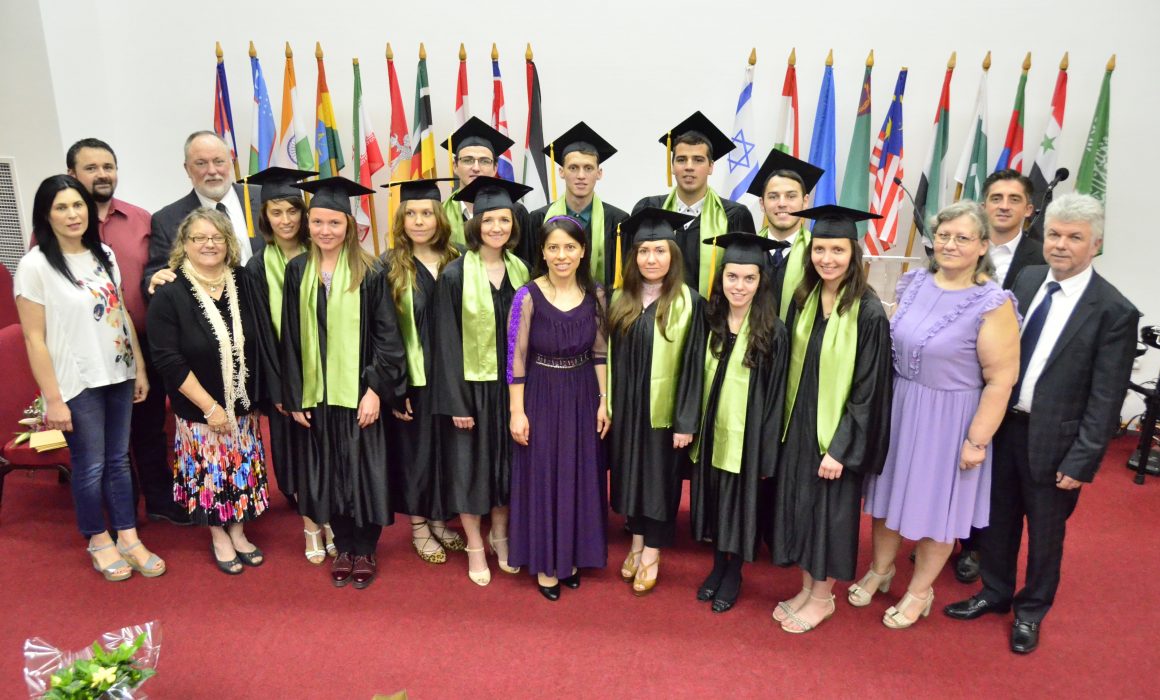
The Romanian Center for Cross-Cultural Studies is coordinated by a Board consisting of: Gh. Rițișan, Rick Cunningham, Ileana-Ina Hrișcă, Daniel Bujeniță, Allan Lind, Daniel Bote, Daniel Hădărean, Coman Flaviu-Teofil. Since 2007, the executive director of the school is Ileana-Ina Hrișcă.
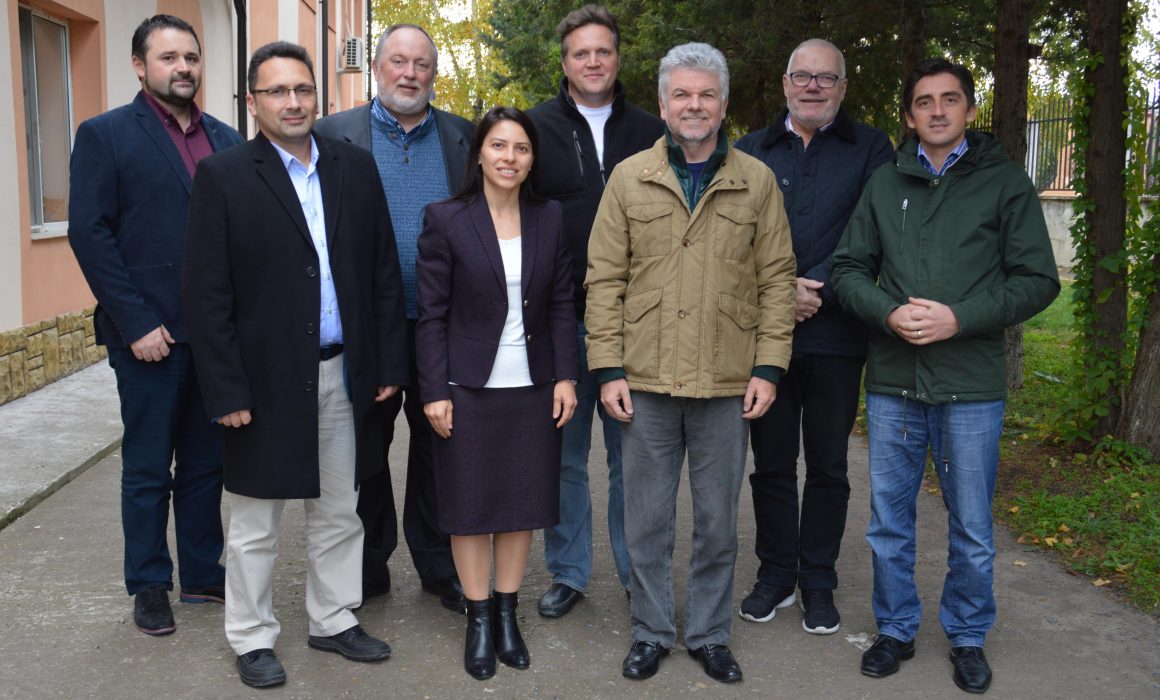
Part of the equipping of each candidate who was accredited by APME is also the Orientation Course that is taught by the executive team and some of the directors. The course is 3-5 days long and its purpose is to familiarize the future missionaries with the agency’s mission, values, practices and strategy. The main resource for this course is the APME Missionary’s Manual, a document that regulates the missionaries’ statute, and also the rapport that they’ll have with the Board of Directors, the regional coordinator and with the executive team.
c. Coordination
The growing number of missionaries made it necessary to constantly restructure the mission fields, in order to better assist, mentor, counsel and coordinate the missionaries’ work. Currently, there are 5 regional coordinators that are in charge of the 76 missionaries spread over three continents.
- Europe – Nicolae Iacob
- North Africa – George G.
- South Africa – Iacob Berghianu
- Continental Asia – Mircea Dumitru Deteșan
- The Indian Subcontinent – Rick Cunningham
Mircea Deteșan Jr. and Daniel Bujeniță also served, for certain periods of time, as regional coordinators.
Starting in 2010, APME has been organizing an annual retreat for the missionaries who are able to come to Romania every summer. The retreat is intended to be a time of encouragement and counsel for the missionaries. It is a time when the necessary spiritual and emotional care can be provided, and also the holistic counseling and spiritual recharge that the missionaries need so they can be ready for another season of spiritual battle in the front lines.
The first retreat was organized in Geoagiu Băi. Last year (2019), to facilitate less expensive retreats, they were also organized on two of the continents where the missionaries serve (Asia and Europe).
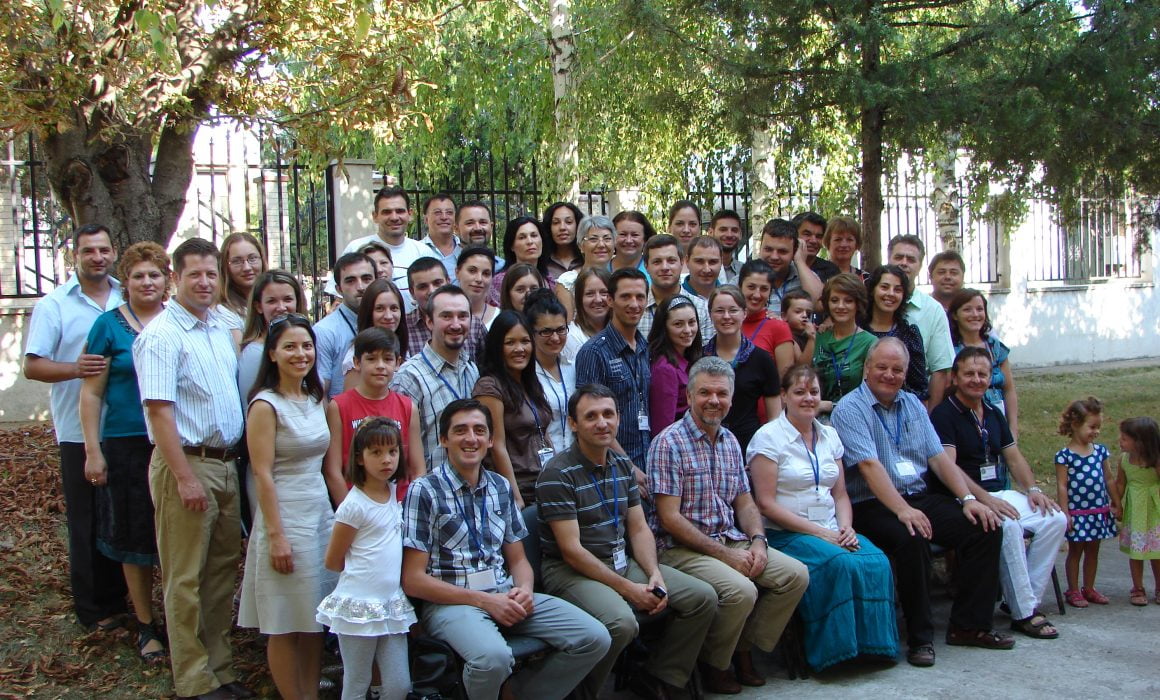
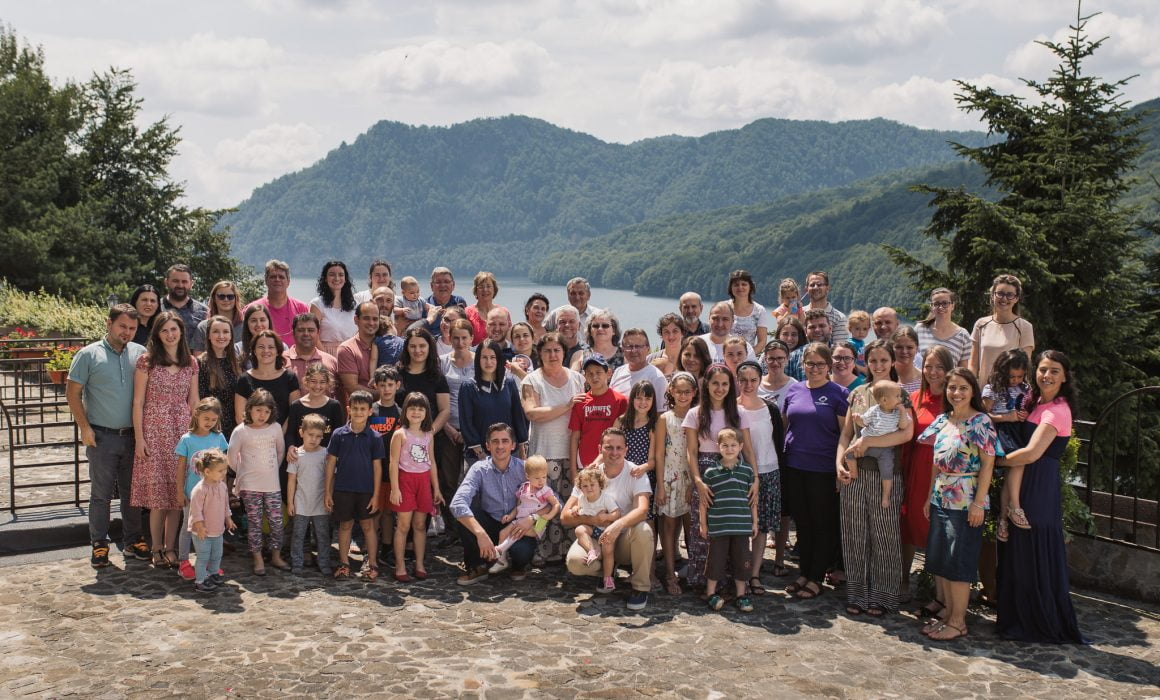
d. Administration – Office
The administrative part of APME is handled by a team that always tries to implement the Board of Directors’ vision, and also to manage all finances in a correct and transparent way. The team is responsible for having a good rapport with the missionaries, the donors, and the state institutions. The dimension of the administrative team (people who work full-time or part-time) depends on how much the agency’s missionary work is expanding globally, on the number of missionaries, but also on the complexity of all the agency’s current activities.
Throughout the years, the following people served in the APME office:
Lidia Coman – APME’s first secretary (2006-2009)
Marcel Șaitiș – secretary (2009-2014), currently serving as a missionary in Madagascar
Florin Popa – secretary (2014-2018), currently serving as a missionary in Madagascar
George G. – executive director (2016-2018), currently serving as a missionary in West Africa.
Vlad Luca – accountant (2013-2016)
Daniel Bujeniță – Department of Mobilization and Coordination (2010-2019), now serving as a pastor
Irisa-Iulia Kolozsi – finances (2015-2018, 2020)
The configuration of the current administrative team (with 4 people working part-time) is as follows: Mircea Deteșan Jr. (mobilization), Silvia Miclea (accounting), Cristina Barariu (finances), Lea-Priscila Mocan (production of promotional materials), Iacob Nicolae (Europe coordinator), Ina Țiclea (secretary, human resources), Adrian & Alina Cătău (IT and relations with the donors).
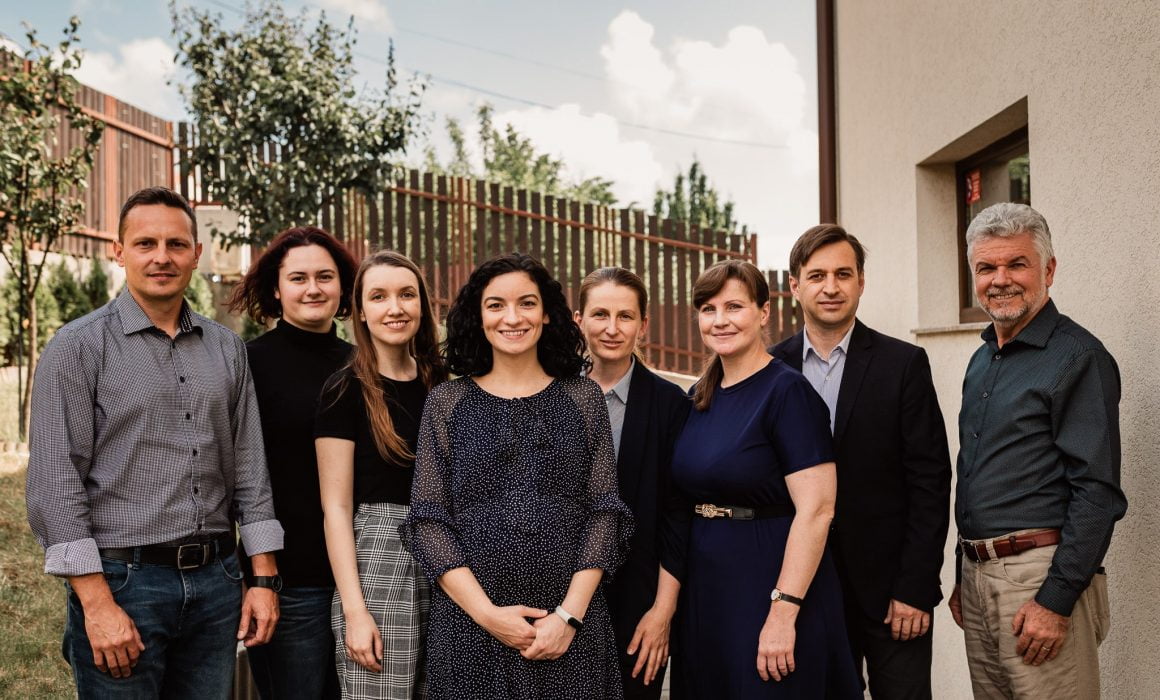
e. Leadership and supervision
The APME leadership consists of the Board of Directors, who is accountable to the Reference Committee. This Committee is the entity that, along with the Ecclesiastical Council of the Pentecostal Church, is supervising all of APME’s work.
The current Board of Directors of APME: Gh. Rițișan – president, Mircea Dumitru Deteșan – vice president, Ileana-Ina Hrișcă – secretary, Rick Cunningham – secretary for foreign relations, Emil Meștereagă, Iacob Berghianu, Florin Cîmpean – members.
The Reference Committee: Ioan Moldovan (coordinator), Simion Bumbar, Liviu Axinte, Doru Cîrdei, Aurel Avram, Corneliu Constantineanu, Eugen Jugaru, Vasilică Croitor, Simion Timbuc, Paul Popov, Alexandru Miaun, Dănuț Iacob.

Note:
- The following references were used in creating this material:
- Gh. Rițișan & Corneliu Constantineanu – Mission in Central and Eastern Europe (APME – A Case Study in Cross-Cultural Mission Originating from Eastern Europe, pag. 345-362), Regnum Books International, 2016
- Valerian Andreiescu – A History of the Romanian Pentecostalism
- Cameron Wilson – He Discovered His Mission
- Documents, photographs and personal testimonies of those who were a part of APME’s history.
